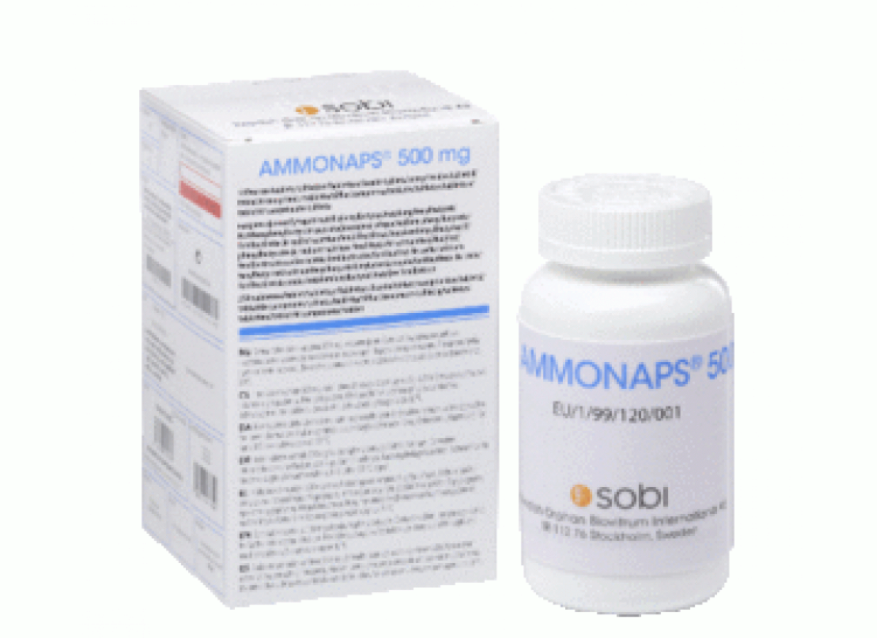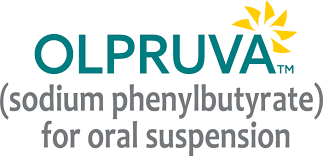Ammonaps (sodium phenylbutyrate) vs Olpruva (sodium phenylbutyrate)
Ammonaps (sodium phenylbutyrate) vs Olpruva (sodium phenylbutyrate)
Ammonaps and Olpruva both contain the active ingredient sodium phenylbutyrate and are used to treat urea cycle disorders by helping remove excess ammonia from the blood. The main difference between the two may lie in their manufacturer, branding, availability, or excipients, which could affect tolerability or patient preference. When deciding between Ammonaps and Olpruva, it is important to consult with a healthcare professional to consider individual medical history, potential side effects, and any other medications being taken to ensure the most appropriate and effective treatment choice.
Difference between Ammonaps and Olpruva
| Metric | Ammonaps (sodium phenylbutyrate) | Olpruva (sodium phenylbutyrate) |
|---|---|---|
| Generic name | Sodium phenylbutyrate | Sodium phenylbutyrate |
| Indications | Urea cycle disorders | Urea cycle disorders |
| Mechanism of action | Converts to phenylacetate which conjugates with glutamine to form phenylacetylglutamine, which is excreted by the kidneys | Converts to phenylacetate which conjugates with glutamine to form phenylacetylglutamine, which is excreted by the kidneys |
| Brand names | Ammonaps | Olpruva |
| Administrative route | Oral | Oral |
| Side effects | Menstrual abnormalities, amenorrhea, decreased appetite, body odor, bad taste, nausea, vomiting, constipation | Menstrual abnormalities, amenorrhea, decreased appetite, body odor, bad taste, nausea, vomiting, constipation |
| Contraindications | Hypersensitivity to sodium phenylbutyrate or any component of the formulation | Hypersensitivity to sodium phenylbutyrate or any component of the formulation |
| Drug class | Urea cycle disorder agent | Urea cycle disorder agent |
| Manufacturer | Swedish Orphan Biovitrum | Horizon Therapeutics |
Efficacy
Introduction to Sodium Phenylbutyrate in ALS
Ammonaps and Olpruva, both containing the active ingredient sodium phenylbutyrate, are medications that have been explored for their potential efficacy in the treatment of Amyotrophic Lateral Sclerosis (ALS). ALS is a progressive neurodegenerative disease that affects nerve cells in the brain and the spinal cord, leading to muscle weakness and atrophy. Sodium phenylbutyrate is traditionally used to treat urea cycle disorders, but its role in neuroprotection has been a subject of research in the context of ALS.
Research on Sodium Phenylbutyrate in ALS
Studies investigating the efficacy of sodium phenylbutyrate in ALS have focused on its potential to reduce neuronal stress and promote neuronal survival. The compound has been shown to exert a chaperone-like activity that may help in reducing the misfolding of proteins, which is a characteristic feature in many neurodegenerative diseases, including ALS. Additionally, sodium phenylbutyrate may help to mitigate oxidative stress and modulate inflammatory responses, which are both implicated in the pathophysiology of ALS.
Clinical Trials and Outcomes
Clinical trials have been conducted to assess the efficacy of sodium phenylbutyrate in patients with ALS. These trials have aimed to determine whether the drug can slow the progression of the disease, improve survival, or ameliorate symptoms. However, the results have been mixed, with some studies suggesting potential benefits, while others have not demonstrated a significant impact on disease progression or survival rates. The variability in outcomes may be due to differences in study design, patient populations, dosage regimens, and the duration of treatment.
Current Status of Sodium Phenylbutyrate for ALS
As of the current knowledge cutoff, sodium phenylbutyrate is not approved by regulatory agencies specifically for the treatment of ALS. While there is some evidence to suggest it may have a role in managing the disease, further research is needed to fully understand its efficacy and safety in this context. Physicians may consider its off-label use in certain cases, but this should be done with careful consideration of the available evidence and within the context of a comprehensive treatment plan for ALS. Ongoing research and future clinical trials may provide more definitive answers regarding the role of sodium phenylbutyrate in treating ALS.
Regulatory Agency Approvals
Ammonaps
-
European Medical Agency (EMA), European Union

-
Food and Drug Administration (FDA), USA

-
Therapeutic Goods Administration (TGA), Australia

Olpruva
-
Food and Drug Administration (FDA), USA

Access Ammonaps or Olpruva today
If Ammonaps or Olpruva are not approved or available in your country (e.g. due to supply issues), you can access them via Everyone.org.
How it works

Make an enquiry
Choose the medicine you want to buy, answer a couple of questions, and upload your prescription to speed things up. We’ll get back to you within 24 hours.


Make an enquiry
Choose the medicine you want to buy, answer a couple of questions, and upload your prescription to speed things up. We’ll get back to you within 24 hours.


Breeze through the paperwork
We'll guide you through the required documents for importing unapproved medicine, ensuring you have all the necessary information.


Get a personalized quote
We’ll prepare a quote for you, including medicine costs and any shipping, administrative, or import fees that may apply.


Receive your medicine
Accept the quote and we’ll handle the rest - sourcing and safely delivering your medicine.

Some text on this page has been automatically generated. Speak to your physician before you start a new treatment or medication.
Let's talk
If you have any questions, call us or send us a message through WhatsApp or email:
Contact us




